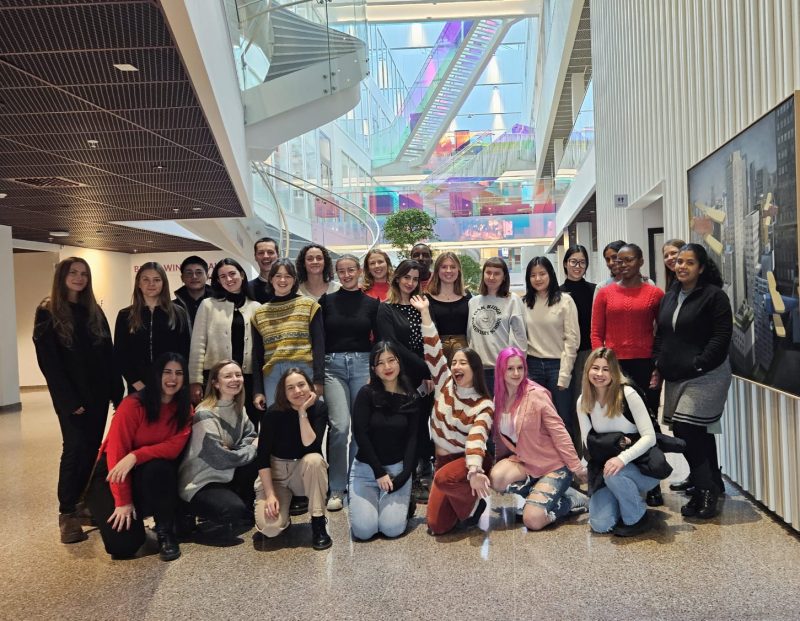
Meet the Nutrition Science MSc Class of 2025
Once again the application period is on the way and soon coming to a close. The time of filling out the CV form in detail and on time was stressful, to say the least. More than a year later and finishing my second year I know it was all worth it. One of the greatest joys I had was spending time with the people I met at Karolinska Institutet who are enrolling every year. That’s why I wanted to present the new class in the Master of Nutrition Science! If you are interested in last year’s class check out my previous blog!
Without further ado, let me present you the Nutrition Science class of 2023-2025!
Nationalities
Karolinska Institutet is known for its diverse and international and it holds true to the reputation. The Nutrition Science class starting this year has 32 students from 18 different countries spread around the globe!
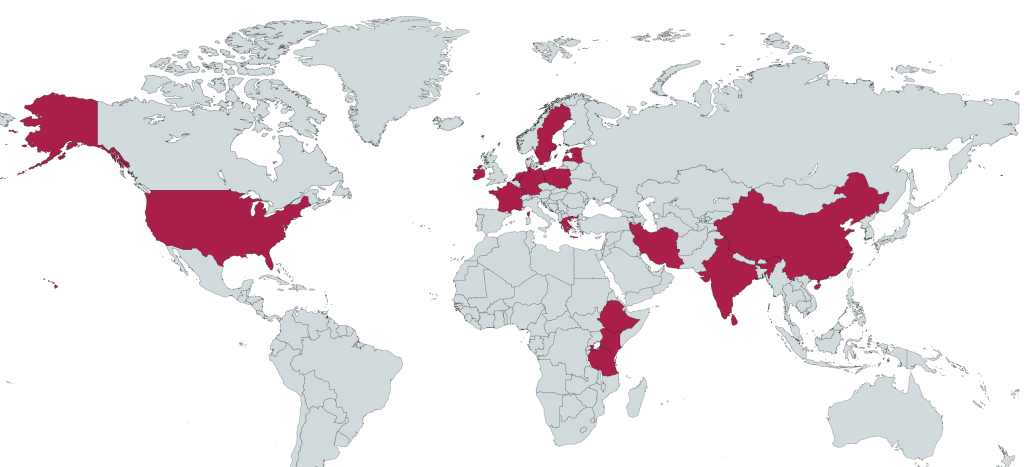
As you can see almost all continents are represented! In the bottom image you can see there is a majority of Dutch, Swedish and Tanzanian students in this year class. With so many cultures and countries inside a classroom there is something to learn for everyone!
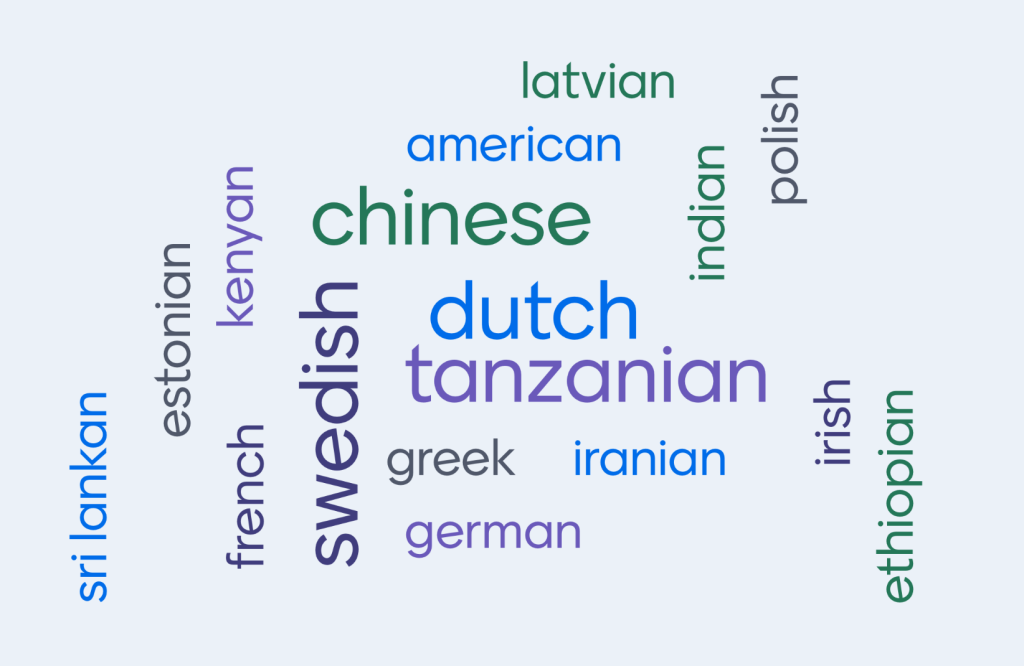
(larger words illustrate that more people have the nationality)
Created with menti.com by Tade Idowu
Languages
People from all over the world equals a variety of languages. This year German is the most known language followed closely by Swedish, Greek, and Swahili. In the class this year students can speak 17 different languages in total!
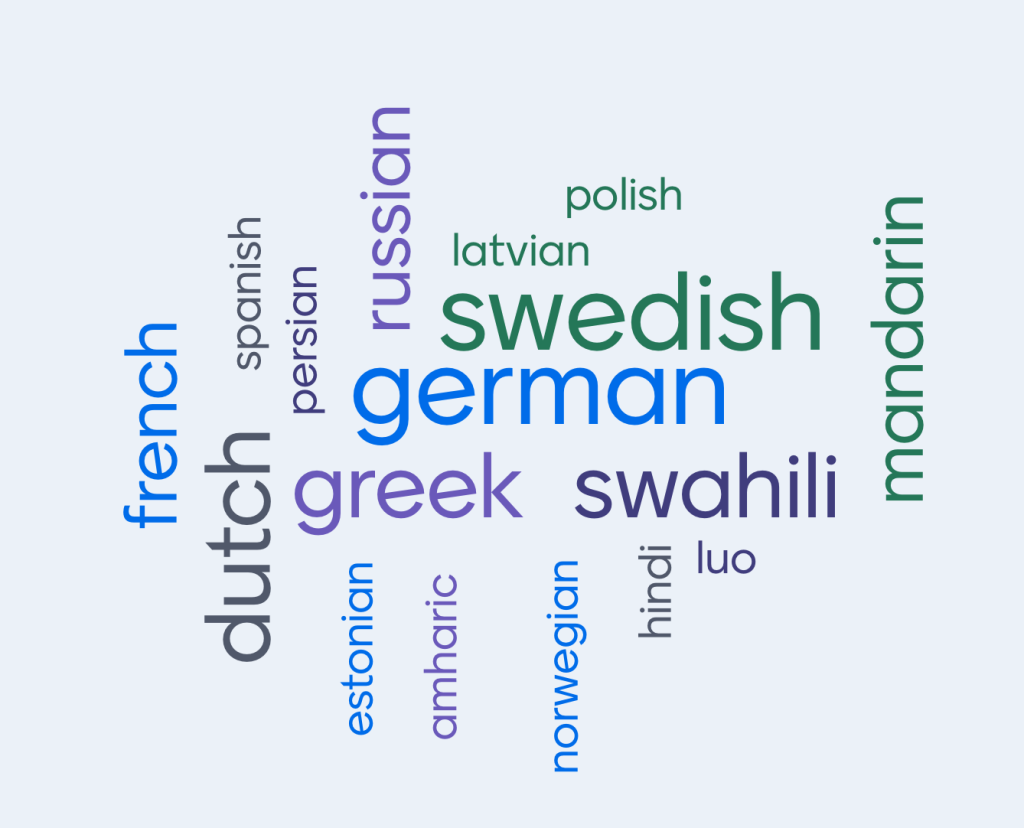
(the larger the word, the more students are able to speak that language)
Created with menti.com by Tade Idowu
Age
What about the age of a regular Nutrition Science Master’s student? You can clearly see a varied age distribution in this year cohort. Some people have lots of life experience while others just started. Therefore, if you are wondering if you are too old or too young to start studying. This serves as inspiration that there is not one single age for a Master’s. Because learning is a lifelong journey!
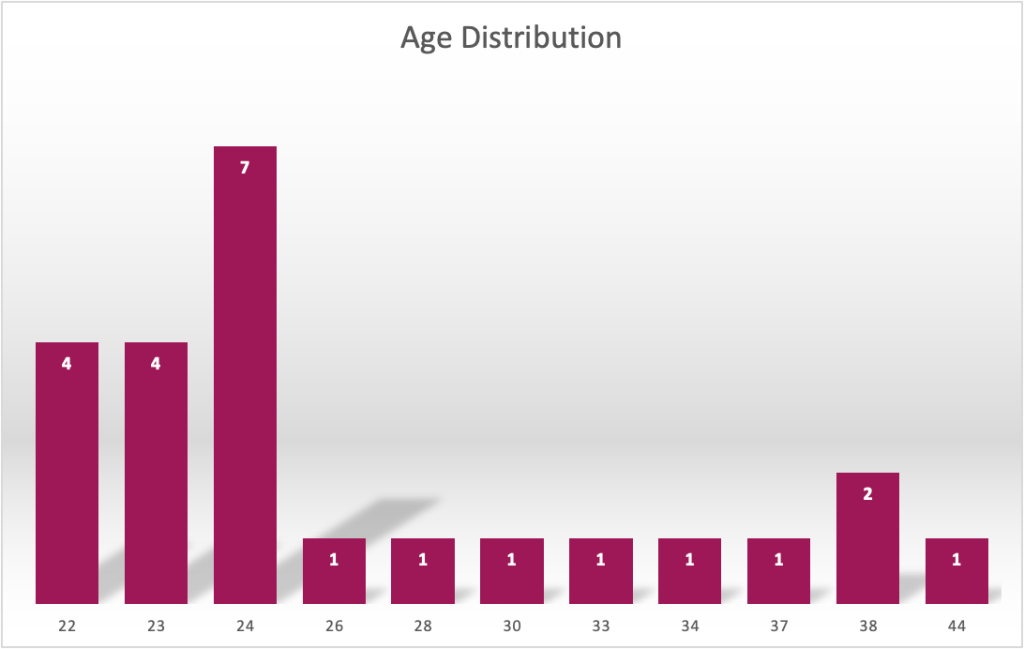
Professional and educational background
If you are thinking of applying to the programme, please keep in mind that the subjects listed or the background do not mean that a person with these degrees or experiences automatically meets the specific entry requirements. Please go to the official site of the Master’s Programme in Nutrition Science to learn more about explicit entry requirements.
In this year class, the biggest portion of students again came from Nutrition or Dietetics background. However, plenty of my peers did something else before like medicine, biomedical science or food science.
Last year I was concerned that everyone had studied purely nutrition and that I would be at a disadvantage because my bachelor’s was an overall natural science degree. However, I realized everyone has different knowledge that can contribute to our learning experience. The previous clinicians can give insight into practical applications. On the other hand, the people focused on Biomedicine or Biology share their work on molecular mechanisms. Nutrition incorporates a lot of aspects and together we can solve modern-day issues that are related to it.
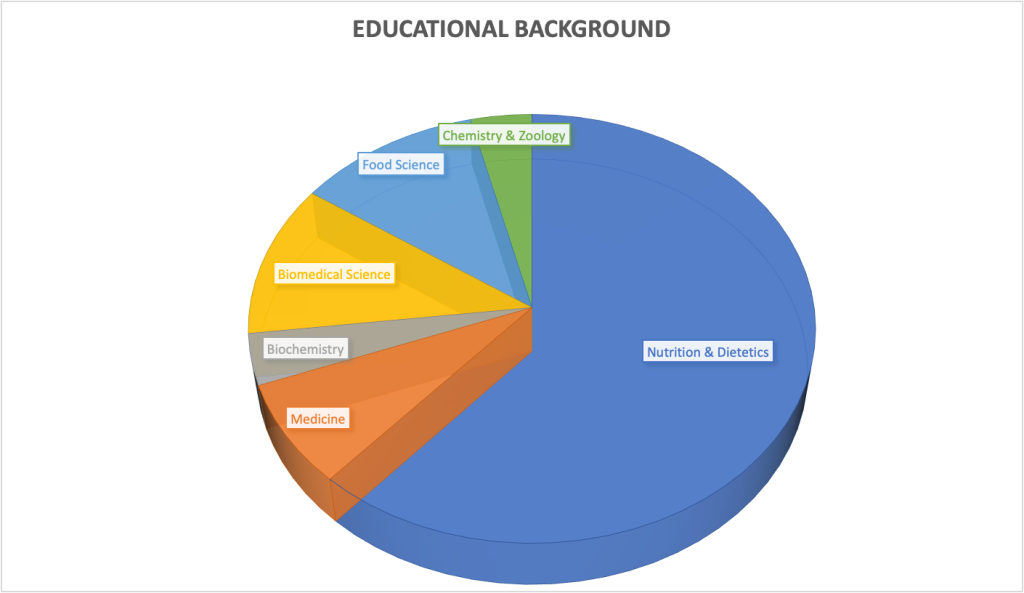
The full-time work experience fluctuates in this year. Compared to last year more people have no work experience, although there are also more people with >6 year work experience. Weather you have none or a lot of work experience you can contribute and learn at Karolinska Institutet. I realized through the collaborative teaching style, peers with more real-world experience can help with going beyond the theory, while students fresh out of the Bachelor can show the latest trick for presentations.

Future endeavours?
Nutrition ranges across many disciplines and therefore our future is wide open. Most students from this year want to continue with a Ph.D. or don’t know exactly what to do. Another large portion is interested in working as a dietitian, pursuing a career in the industry, or conduct research. There is also ambition towards entrepreneur opportunities or travel. This is one of the things I appreciate about this programme people have different ideas about what they want to do with Nutrition and everyone brings in their perspective!
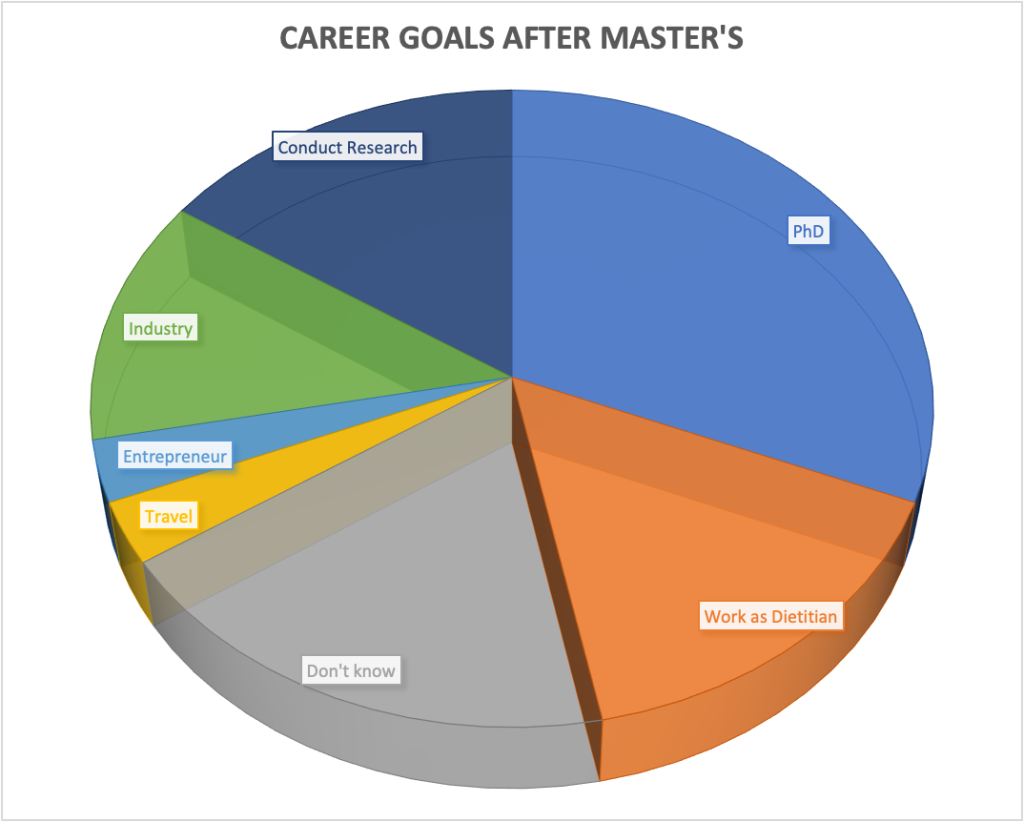
Fun fact
If you ever wondered what do Nutrition students drink while studying. Now you know in this class half the people drink coffee while the other majority is water. I hope this answers your lifelong question.
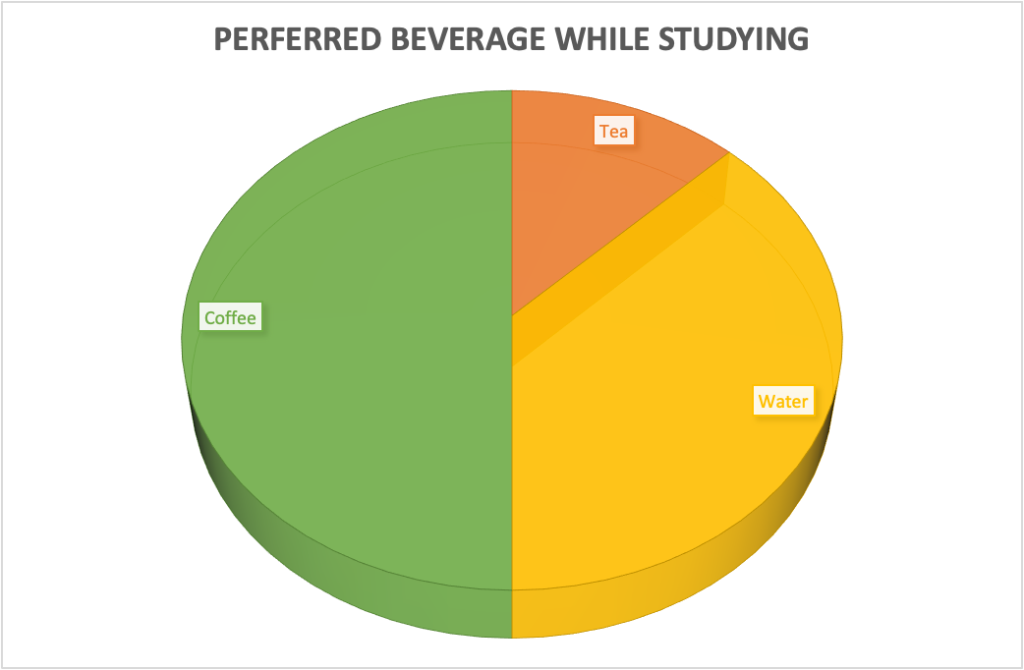
I hope you enjoyed this class overview. If you want to learn more about past Nutrition Science students read this blog.
If you have any questions or comments feel free to contact me on my profile or down below!
-Tade

Tade - Nutrition Science
I am Tade. I am Nigerian/German and the blogger for the Master’s Programme in Nutrition Science. Before KI, I was studying in the Netherlands. My whole life I was interested in food and sports, and that is why I decided to study nutrition. When I learned about KIs group-focused teaching and the international environment I knew where I wanted to go. When I am not exploring or trying different foods I am playing basketball in Solna. If you are ever up for the challenge, you know where to find me!

0 comments